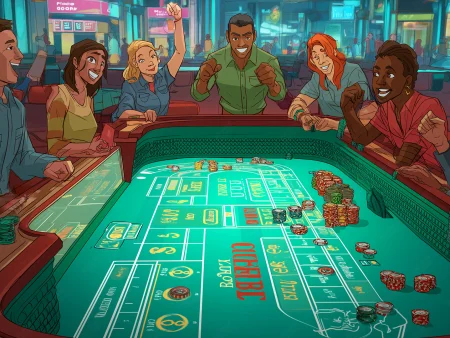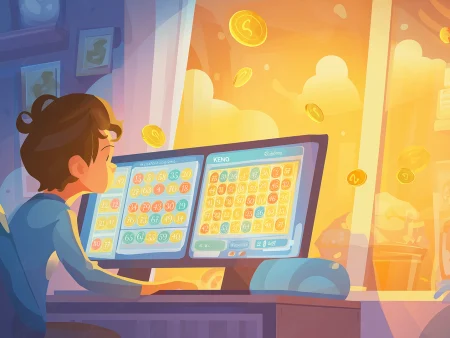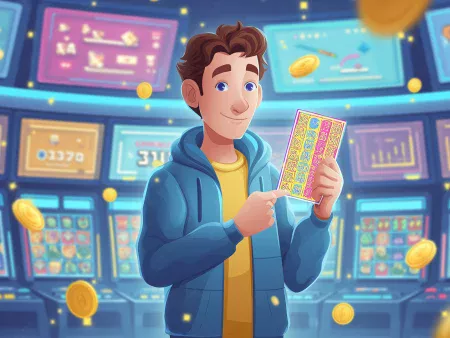Most players have heard the whispers: card counting is shady, dangerous, maybe even criminal. Movies made it look like a one-way ticket to jail or at least a rough trip to the casino backroom. The reality is less dramatic, but it’s just as intriguing.
Counting cards isn’t against the law. It never has been. What it collides with are casino rules, and that’s where the tension comes in. You won’t end up with a criminal record for tracking cards, but you might find yourself cut off from the blackjack pit faster than you can say “hit me.”
For anyone curious about blackjack legality, the key is separating what’s illegal from what’s simply unwelcome. Casinos operate in a gray zone where entertainment meets profit. Push too far into the advantage-play category, like card counting, and you’ll get flagged. Once that happens, the house doesn’t need the law to deal with you.
This guide cuts through the myths, explains why card counting has its notorious reputation, and shows what really happens when you test the boundaries between sharp play and casino rules.
Table of contents
Is Counting Cards Illegal? The Short Answer
Card counting is perfectly legal. No law says you can’t keep track of which cards have been played. In fact, using your brain to spot patterns and adjust bets is part of what makes blackjack appealing. The confusion comes from the gap between blackjack legality in the eyes of the law and how casinos enforce their own rules.
Casinos don’t care that it’s legal. They see it as a direct threat to their bottom line. If a pit boss or surveillance team suspects you’re counting, they won’t call the police. Instead, they’ll:
- Shuffle more often to kill your edge
- Drop table limits
- Ask you to step away from the game
- In some cases, ban you from the property altogether
So while card counting isn’t a crime, it’s definitely unwelcome. Think of it like driving just under the speed limit: you won’t get arrested, but if you weave too close to the line, you’ll draw attention you don’t want.
The Law vs. Casino Rules
Legal Standpoint
Card counting is simply using your brain. You’re keeping mental notes of high and low cards to adjust your bets, and that alone isn’t illegal anywhere. No jurisdiction lists it as a criminal offense.
Where the line gets drawn is when outside tools or tech enter the picture. Using hidden devices, phone apps, or software to track cards is considered cheating, and that is illegal. Regulators make the distinction clear: memory and skill are fair play, but mechanical or digital assistance isn’t.
Casino Howuse Rules
This is where things shift. Casinos don’t rely on the law to protect their edge, they rely on their own policies. Every gaming venue has the “right to refuse service,” and they use it when someone pushes too far into advantage play.
If a pit boss suspects you’re counting, they can:
- Reshuffle more often to dilute your count
- Cut the deck deeper to reduce predictability
- Ask you to leave the table or property
- Place you on a banned list if you persist
Some players are formally banned, others just find their game made unplayable. It’s not about breaking the law, it’s about breaking casino rules that are designed to keep blackjack profitable for the house.
What Really Happens if You’re Caught Counting
Casinos run on patterns, and pit bosses are trained to spot them. If your bets suddenly spike when the shoe is rich in high cards, or you scale back when it runs cold, surveillance teams will notice. That betting rhythm is the tell most counters can’t hide forever.
What happens next usually isn’t dramatic, but it is decisive:
- You might get a polite warning to stop playing blackjack at that table
- The dealer could be told to shuffle more often, killing your edge
- Security may ask you to leave, and in persistent cases, add you to a banned list
The key thing to remember: you won’t end up in handcuffs for card counting. There’s no police officer waiting behind the cashier cage. But you might be escorted to the parking lot with a clear reminder that casinos always reserve the right to show you the door.
Is Card Counting Cheating?
Cheating in blackjack is straightforward: it’s marking cards, colluding with dealers, or using electronic devices to gain an unfair edge. Those tactics break the law and can land you in serious trouble.
Card counting is different. It’s observation and memory, nothing more. No tricks, no hidden tools, just focus and discipline. That’s why it lives in a gray area. To players, it feels like smart strategy. To casinos, it looks like skimming from their profits.
Here’s the irony: blackjack is marketed as a skill game. But when players actually apply advanced skill through counting, they’re punished for it. That contradiction has fueled debate for decades. Is it really wrong to play better than the average customer, or does the house only want “skill” when it doesn’t cost them money?
Can You Actually Make Money Counting Cards Online?
When it comes to online blackjack, card counting runs into a brick wall. In RNG (random number generator) games, the deck is reshuffled after every single hand. That makes tracking cards impossible. Even if you tried, you’d just be counting into a reset deck every time.
Live dealer blackjack feels closer to the real thing, but casinos stack the odds here too. Continuous shuffling machines and multi-deck shoes eliminate any realistic chance of building a profitable count. Even when you think you’ve got a read, the house has built-in safeguards to erase your edge.
Here’s the insider truth: counting cards online is more myth than method. What actually works are legal alternatives, strategy simulators, blackjack calculators, and demo games that sharpen your decision-making without needing to “beat the shuffle.”
Want proven tactics you can use in any game? Read Blackjack Strategy That Works.
Ethical Play and Responsible Gambling
Advantage play has its appeal. Outsmarting the house and walking away with profit feels exciting, but at the end of the day, gambling is still gambling. Even the sharpest strategies carry risk, and it’s never worth chasing an edge at the cost of your bankroll or well-being.
A smarter way to sharpen your game is by practicing in low-risk environments. Blackjack simulators and demo tables let you build decision-making skills without real money on the line. They also help you develop the same muscle memory you’d use in live play, making them ideal for testing strategies before stepping into a casino.
Knowing when to avoid or take side bets can have just as much impact on your bottom line as any counting method.
Conclusion
So, is counting cards illegal? No. It’s not a crime, you won’t be arrested for it, and it’s certainly not the Hollywood-style heist it’s often portrayed as. But it is unwelcome. Casinos have every right to protect their games, and when they sense you’re gaining too much of an edge, they’ll act. That might mean more frequent shuffles, a polite tap on the shoulder, or even a permanent ban from the blackjack pit.
Card counting lives in that strange space between clever play and casino politics. It proves that blackjack can reward skill, but also shows just how fiercely the house defends its bottom line. For most players, the smarter move isn’t chasing myths, but mastering the strategies that consistently improve your decisions at the table.
FAQs About Counting Cards and Legality
No. Counting cards is not a crime, since it relies on observation and memory. Casinos may ban you for it, but there are no legal penalties.
Casinos must honor legitimate winnings. What they can do is stop you from playing further if they suspect you’re counting.
Not if you’re just using your head. Jail only applies if you use cheating devices, collusion, or illegal methods. Pure mental counting isn’t criminal.
Pit bosses and surveillance teams are trained to spot betting patterns linked to counting. They don’t know your thoughts, but they can read your play.
No strategy guarantees profit. Card counting only shifts the odds slightly in your favor over time, but variance still plays a big role in short sessions.












































